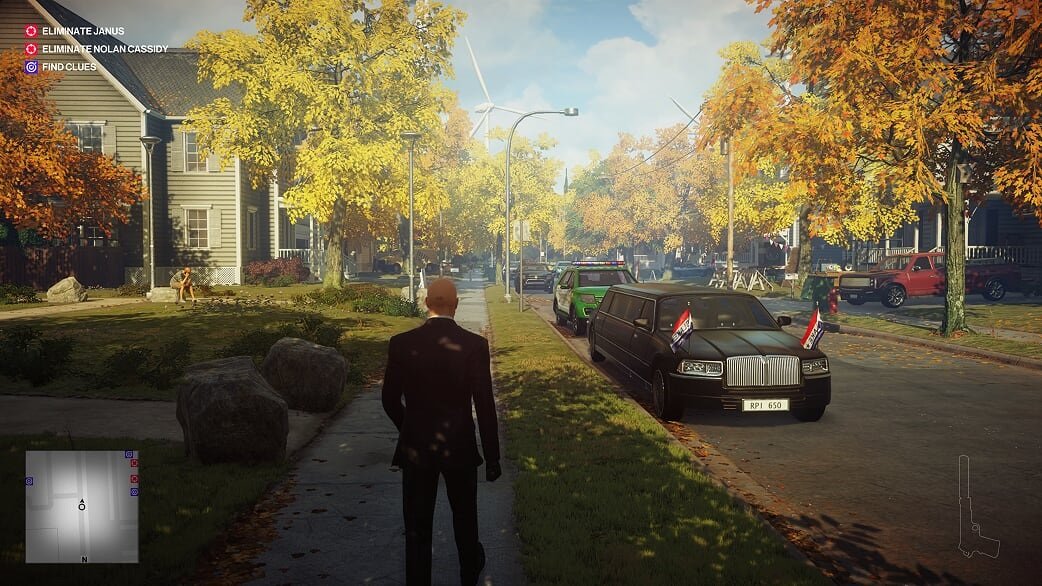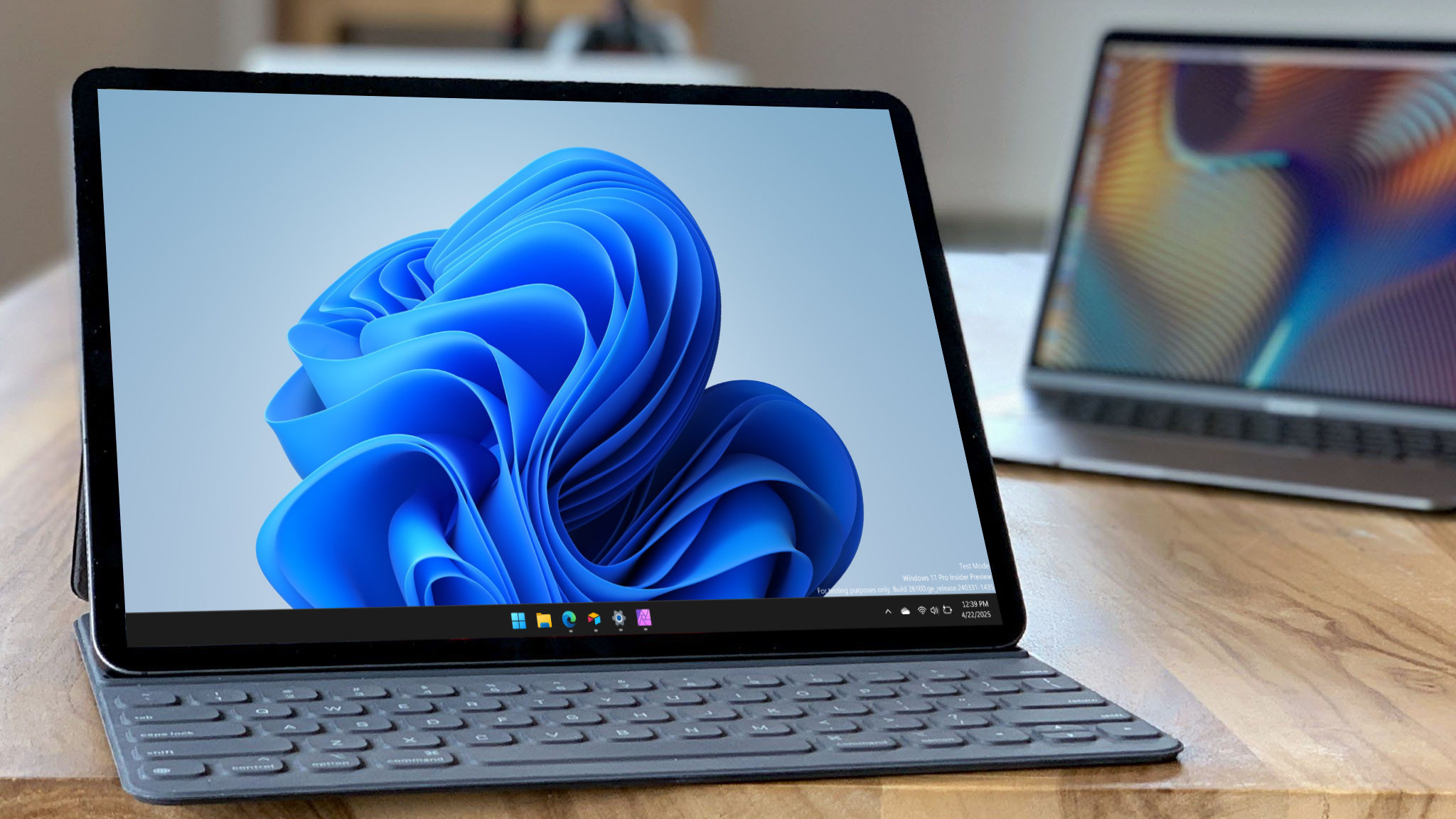Unlike stealth series such as Dishonored or Thief, Hitman is all about hiding in plain sight. Instead of completely going unnoticed, you can walk right in front of a target with them being none the wiser if you're wearing the right disguise. This affords the Hitman franchise the ability to encourage gameplay that isn't usually seen in a stealth game.

Master of disguise.
Hitman 2 presents engaging playgrounds for you to explore with a ton of variety, but it misses the mark at presenting a cohesive experience.
Hiding in plain sight
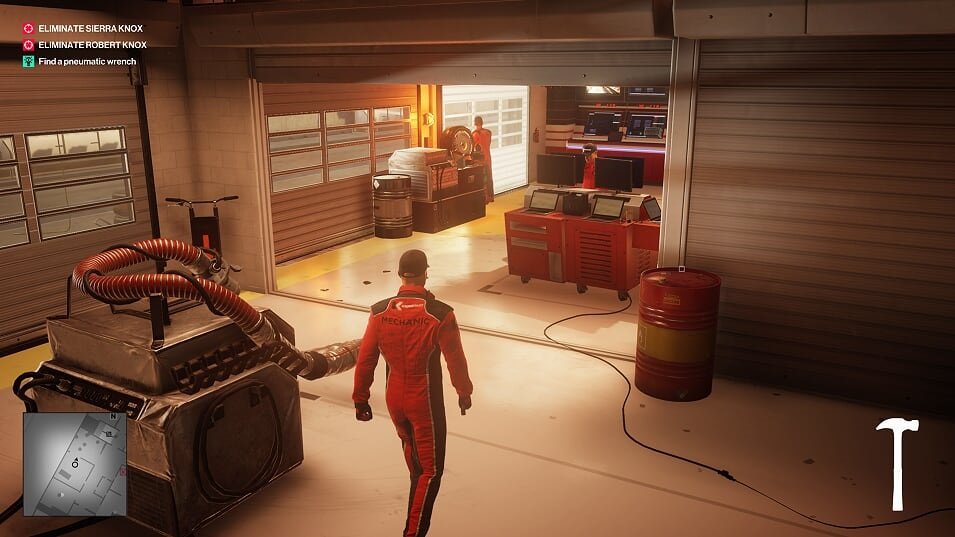
Many stealth games, or games that just have a few stealth sections, are all about staying out of your enemy's eyesight, sneaking around barriers and along dark pathways to get to your destination. While you can certainly play Hitman 2 like that way if you'd like, where the game shines is its allowance for players to take on other personas. Agent 47 is the best assassin around because he strategically surveils his surroundings and takes advantage of opportunities that arise to get close to a target. If this means dressing up us a mystical shaman or a typical construction worker, then so be it. You can use every tool at your disposal, and Hitman 2 provides a lot of tools.
If this type of stealth isn't appealing, Hitman 2 still offers more classic stealth mechanics like hiding in overgrown foliage, blending into crowds, and lurking around corners. It's just much more difficult to play the game solely this way as these aren't exactly meant as viable alternative approaches to your missions, but more of a way to complement other routes.
More than one way to skin a cat
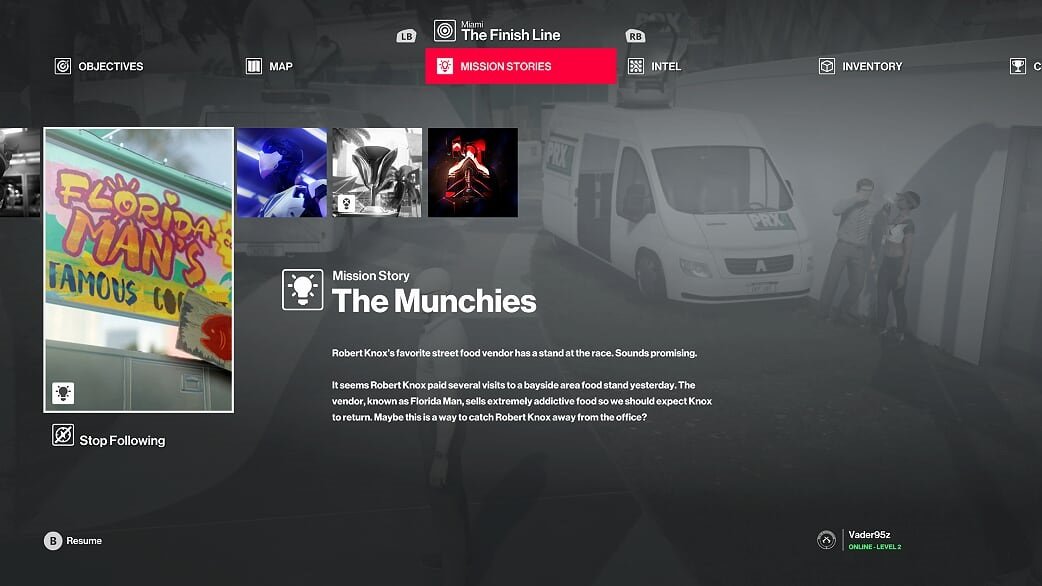
A staple of the Hitman series is the amount of freedom you are given to perform your task. Though each target in Hitman 2 has a few predetermined methods built into the game as to how they can be taken out, you're allowed to do anything within your power to assassinate them. You aren't confined to these methods, but they do make your job a tad easier and more interesting depending on how well you take advantage of the scenarios presented to you.
A staple of the Hitman series is the amount of freedom you are given to perform your task.
Do you disguise yourself as a tailor and walk right up to your target waiting for their fitting, unsuspecting that it will be their last? Do you poison their food and strike as they hobble away disoriented? Each path you take provides countless opportunities for you. The more you explore, the more intel you gather, thus opening up more opportunities.
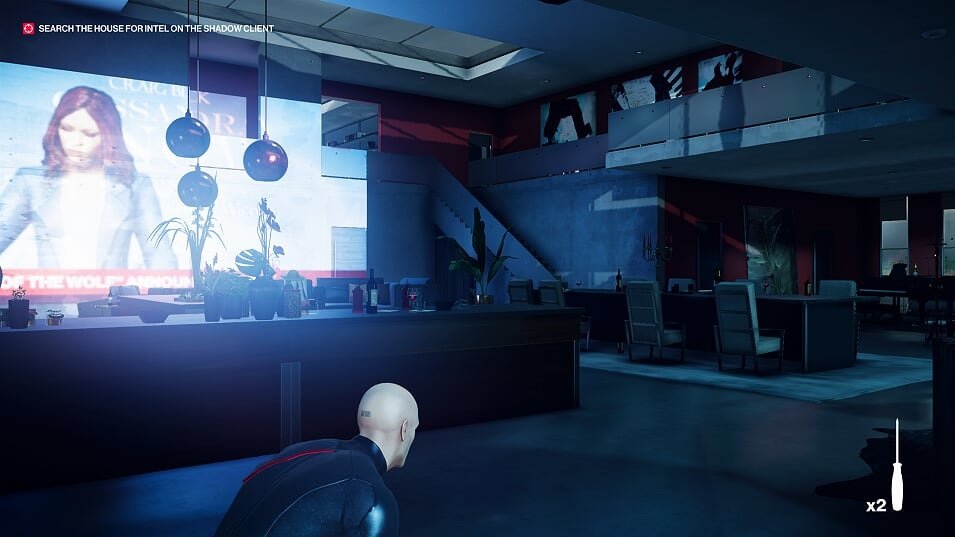
While a lot of developers brag about the replayability of their games, it's difficult to invest so much of your time into something if you feel there isn't any worthwhile incentive. Hitman 2 advertises its incentives quite openly. Straight after beating a mission you'll see new gadgets you've unlocked, new starting locations, and new pathways to complete the level you just finished. Along with the ability to pursue a different assassination method, you may find it well worth your time to give it another go, but your mileage may vary depending on your preferred playstyle.
I'm the type of person who plays a game stealth game as safely as possible, meaning I don't draw untoward attention to myself and I try not to create chaotic scenes. Because of this, even though I unlocked new items to use, I tended to stick to a few trusty and reliable items that always served me well; a lock pick, coins to toss for a quick distraction. That sort of stuff. I never really grabbed items like the concussive grenades because they didn't suit my playstyle.
From Miami to Mumbai

Hitman 2 features six distinct locations, though one of them is quite small and acts as more of a tutorial level. Other than that beginning location, each provides a breadth of diversity as you travel the globe from locations like Miami, Mumbai, Colombia, Vermont, and an island in the North Atlantic. From sprawling slums to quiet neighborhoods and high society events for the global elite, I never felt as if I was retreading territory.
Ghost Mode and Sniper Assassin
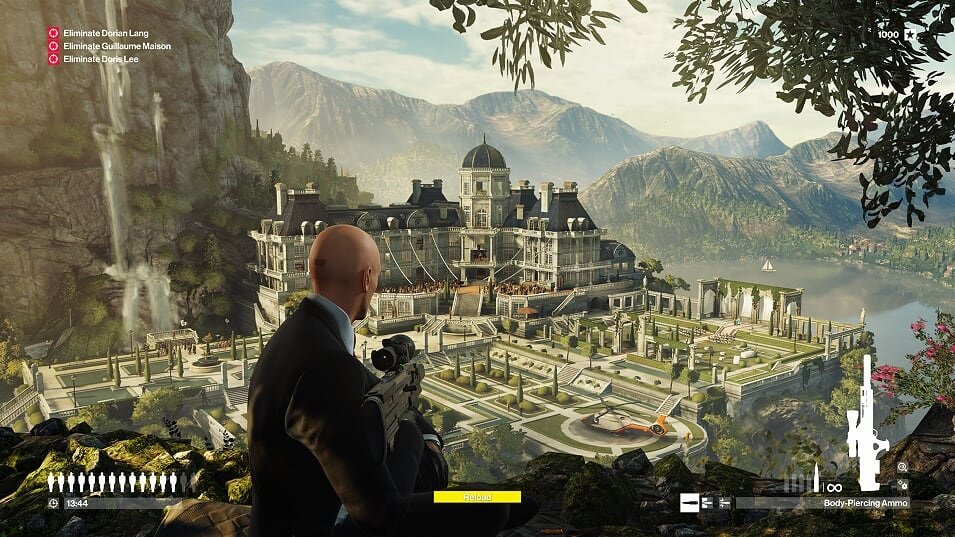
Because single-player experiences are often hard to monetize and are a greater risk to create, we've started to see a lot of games incorporate online elements of some kind. Hitman 2 joins the growing list of traditionally single-player games doing just that. Ghost Mode and Sniper Assassin introduce competitive multiplayer and online co-op gameplay to the series, respectively.
Ghost Mode is being billed as a beta experience at Hitman 2's launch. I was unfortunately unable to test it out as of the time of writing even after several attempts at trying to find a match. Pitting one player against another, Ghost Mode challenges you to be the first to five kills. You start at the same location with the same targets, and neither player starts with any gadgets. If you happen to kill one of your targets first, your opponent has a limited amount of time to respond, and a kill that it witnessed does not count. Though the level you are in is identical to your opponent's, you do not exist within the same game world. As such, your actions will not affect your opponent's world. You can't cause a chaotic scene hoping to slow them down.
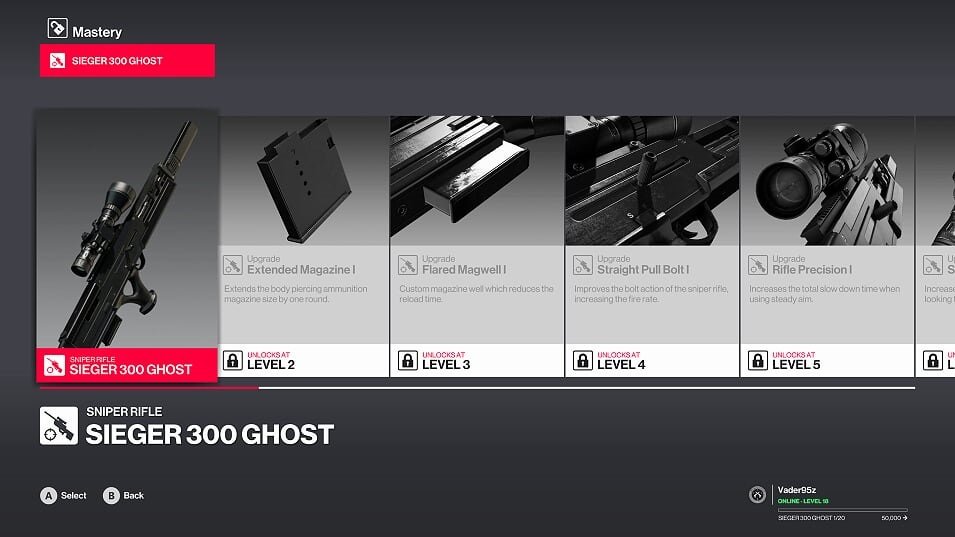
Because Sniper Assassin, the other new mode, can also be played solo, I was able to put some time into it. You have 15 minutes to eliminate several high profile targets from a vantage point with your sniper rifle. This mode is decidedly less exciting than the main campaign. The sniper you begin with has a tremendous amount of sway, making it difficult to hit anything. The ability to stabilize your rifle is mapped to the right trigger by pressing it lightly without fully holding it down to shoot. I felt this button layout was unintuitive and only made precision more difficult.
What's more is that if an NPC finds a dead body, the whole location will go on lockdown as your targets attempt to escape. If even one escapes, the mission is aborted. I'm not sure it's even worth your time to unlock better weapon upgrades for this mode.
Both Ghost Mode and Sniper Assassin have the potential to offer longevity to the game down the road, but I'm not sure if they will become popular enough to sustain a sizeable player base.
Agent 47's past
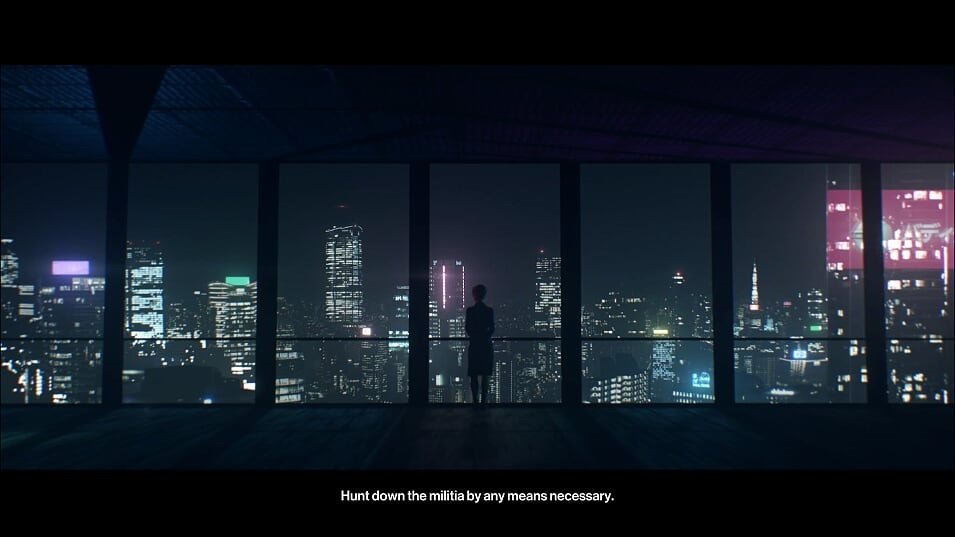
The story in Hitman 2 is presented through several cutscenes of still images while the camera pans across them as dialogue is spoken. You can watch these without ever playing any of the campaign. Hitman 2 delves into Agent 47's past and his true quest involving the Institute, Providence, and the Shadow Client. If this is your first Hitman game, it's not a good starting point if you're in it for the narrative. It's rather short and confusing. If you're looking for a coherent story that's easy to understand without prior knowledge of the series, you won't find it here.
It's understandable that a sequel won't serve as the perfect starting point to your adventure, and it's unfair to ask it to do as much, but Hitman 2 doesn't provide enough backstory or explanation as to what happened during the first game, and what your goal is currently. You're essentially left in the dark.
Identity crisis
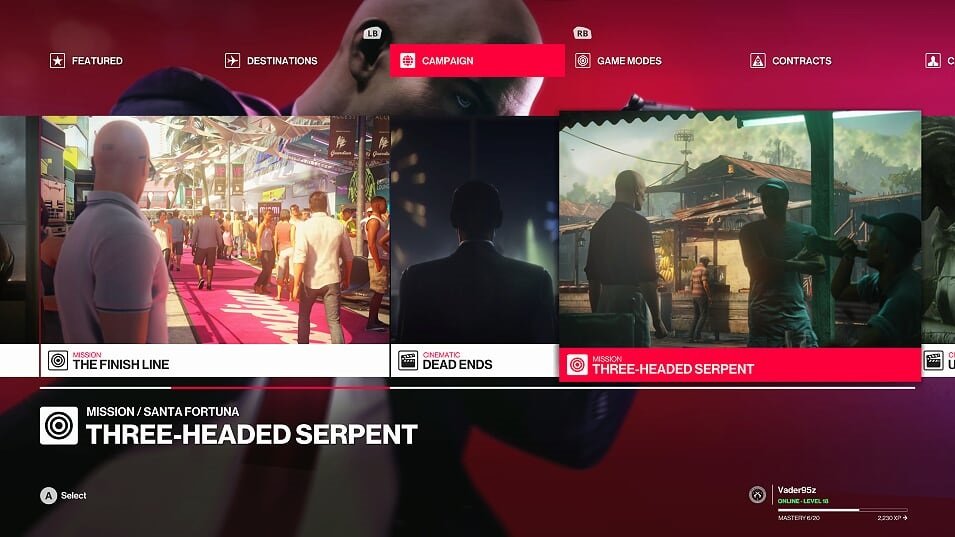
Despite foregoing the episodic release like its predecessor, Hitman 2 doesn't feel like a full-fledged game in the traditional sense either. It's like IO Interactive took the episodic format and bundled it up when all of the work was complete. There are six loosely-connected main missions in Hitman 2 that can be played in any order you like. In fact, each mission is a separate download and the game doesn't even actually download as one whole package. Presenting the game in such a way gives it a bit of an identity crisis, as if IO Interactive wasn't sure what it should be. I feel as if had resources been diverted into creating a more cohesive, linear experience the game would have shined brighter.
Conclusion
IO Interactive set out to perfect the assassination sandbox with Hitman 2. Though the studio fell short, Hitman 2 is a commendable stealth experience that fans of the series shouldn't miss out on. Its future now rests in whether or not its Ghost Mode and celebrity elusive targets can hold people's attention.

Master of disguise.
Hitman 2 presents engaging playgrounds for you to explore with a ton of variety, but it misses the mark at presenting a cohesive experience.
Pros:
- Beautiful environments
- Satisfying progression
- Amount of freedom
- Replayability
Cons:
- Identity crisis
- Underwhelming and short story
Jennifer Locke has been playing video games nearly her entire life, and is very happy Xbox is growing a stronger first-party portfolio. You can find her obsessing over Star Wars and other geeky things on Twitter @JenLocke95.
